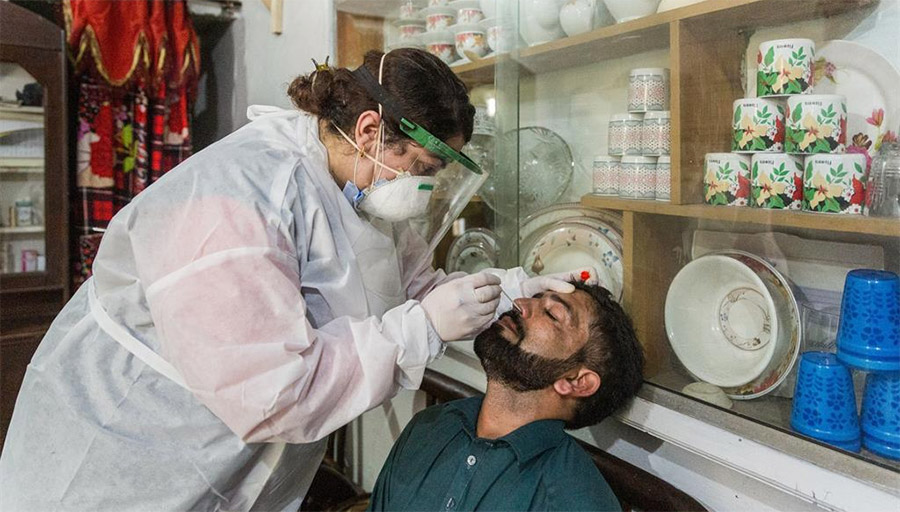 Dr. Samreen Khalil, WHO Polio Eradication Officer, collects a sample from Muhammad Shabir at his residence in Peshawar, Pakistan, to test for COVID-19.
Dr. Samreen Khalil, WHO Polio Eradication Officer, collects a sample from Muhammad Shabir at his residence in Peshawar, Pakistan, to test for COVID-19.
Across the Eastern Mediterranean Region, the polio programme plays a leading role in the delivery of health services far beyond immunization. In many places, polio frontline workers are the heart of health care delivery, and the programme itself forms the foundation of public health. Owing to the 3 decades-plus effort to eradicate polio, much of the public health infrastructure across the Region is, in some way, connected to the programme: laboratory functions, test and trace, population mapping, communication and health care advocacy, to name but a few.
Polio leadership in the COVID-19 pandemic response
In early 2020, as COVID-19 began to spread across the Region, the polio programme stepped forward to support and, in some countries, led the pandemic response. The programme was able to do this quickly and effectively because it had the human and organizational capacity to tackle some of the most urgent needs during a pandemic: disease surveillance, case management, contact tracking, data management and communication. Polio workers applied their existing skills to a new disease, demonstrating their versatility and value for tackling broader health priorities.
During 2021, the polio workforce continued to step up, this time for the rollout of the COVID-19 vaccine. By pivoting to respond to the pandemic, polio workers have showcased their immense role in strengthening health systems and, specifically, to emergency response and essential immunization.
Polio’s longtime support to broader public health
In many places, the polio network plays a foundational role in supporting public health infrastructure.
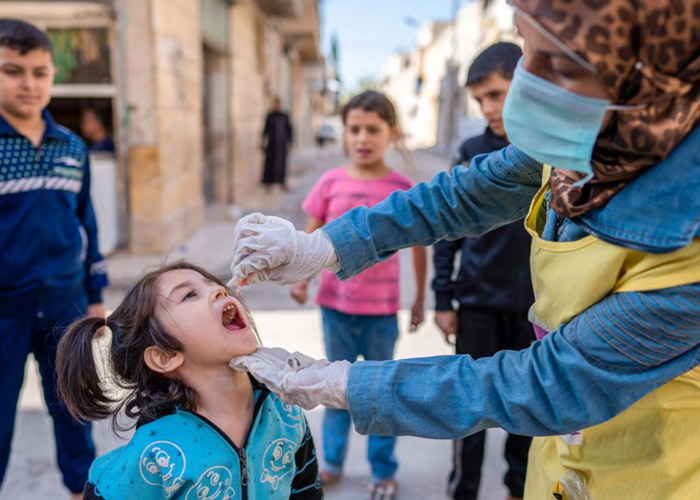
In Syria, the polio and emergency teams are central to the delivery of essential immunization activities across the country.
Photo credit: UNICEF/Adel Janji
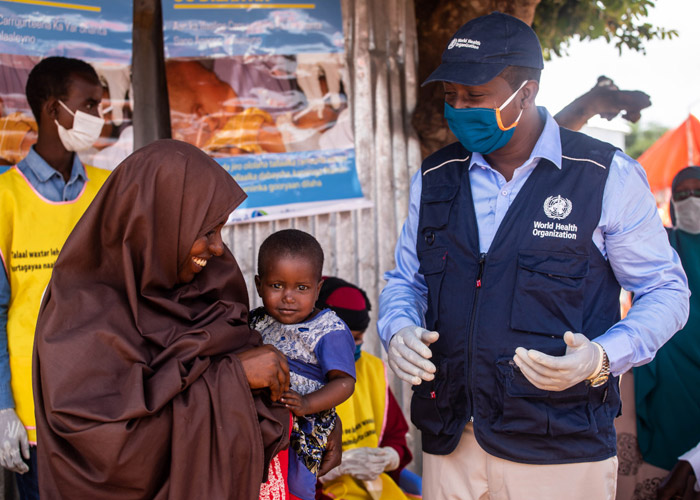
In Somalia, polio programme personnel account for 90% of all WHO staff, and perform key roles in essential immunization, vaccine-preventable disease surveillance and emergency response.
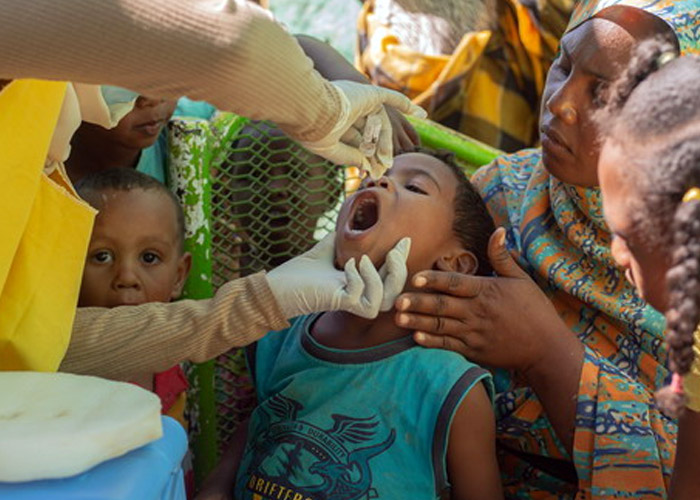
In Sudan, polio field staff work with other programmes as one integrated public health team, sharing the load and tackling multiple other outbreaks and emergencies.
Photo credit: WHO
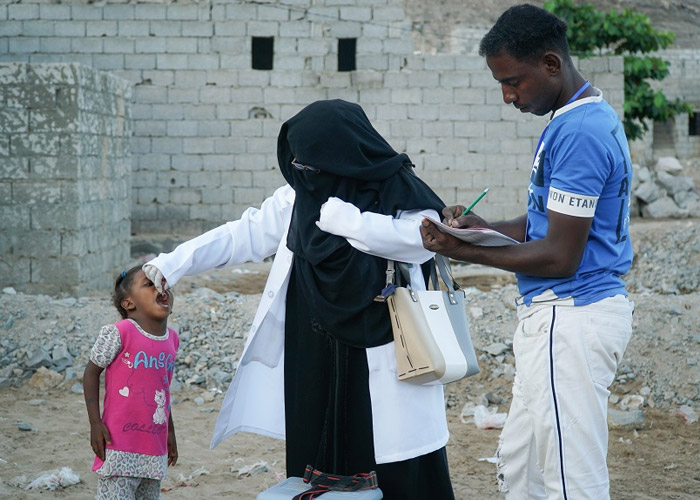
In Yemen, polio workforce contributed to health emergencies and 47 polio-supported government staff are the ‘eyes and ears’ of vaccine-preventable disease surveillance, playing a key role in protecting against outbreaks.
Rotary’s Polio Plus
Another way polio workers support broader health outcomes is through the provision of goods or services not directly related to polio or even vaccination. Rotary International, one of the 6 core partners of the GPEI, has long funded a programme called Polio Plus. Rotary funds are used to buy and distribute soap, organize health camps or even pay for the installation of water pumps. In all cases, vaccination and education on the benefits of immunization is a core part of the ‘plus’ offering. By providing access to some well known health determinants, such as clean water, sanitation and better nutrition, health outcomes can be improved in a meaningful and lasting way.
Integration and transition of polio functions
As we get closer to polio eradication, efforts are being made to ensure that as the polio programme withdraws from polio-free countries, the key health capacities it has long supported are taken on and funded by other WHO programmes and ultimately by national governments. The polio transition process aims to look to the future, to use the foundations laid by the polio programme to build robust health systems that deliver the health services communities need.
Integration between WHO programmes is a vital step on the pathway to a sustainable transition of polio assets, and is a cornerstone of the 2022–2026 GPEI strategy. This can start in the outbreak context, with outbreak response teams coordinating with the expanded programme on immunization and other partners to boost essential immunization in and near outbreak areas. It can also happen outside the outbreak context, as polio assets are integrated into routine immunization infrastructure.
In the Region, the transition workstream includes the creation of Integrated Public Health Teams, which expand the functions of polio staff to cover a wider range of public health functions including polio, immunization, health emergencies, disease surveillance and health systems strengthening.
The goal of transition is to strengthen health systems and ultimately transfer functions to governments, when they are capable of supporting these functions. To maintain momentum towards sustaining health system capacity, polio eradication and polio transition form a standing item on the agenda of the Regional Committee of the Eastern Mediterranean.
To find out more about global transition planning, visit:


